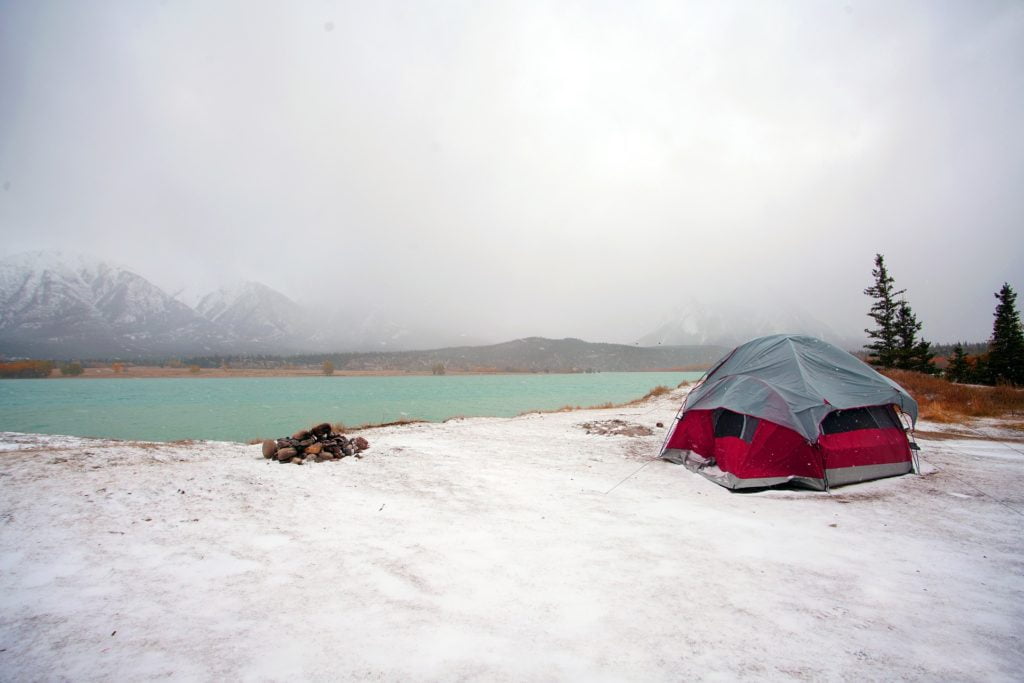
Winter camping can be a magical experience, surrounded by a world of snow and ice. However, it also requires careful preparation and proper gear to ensure a safe and enjoyable trip. Here are ten tips to help you plan a successful winter camping trip:
- Choose the right gear: Investing in quality winter camping gear is essential for staying warm, dry and comfortable. Make sure to pack proper winter clothing, including a warm parka, gloves, hat, and insulated pants and boots. Additionally, consider bringing a four-season tent, a winter sleeping bag and a quality insulated pad for added warmth.
- Know the conditions: Before setting out on your trip, be sure to check the weather and trail conditions. Snow, wind, and cold temperatures can make hiking and camping more challenging, so it’s important to be prepared. Be aware of any potential hazards, such as avalanches, and plan accordingly.
- Pack extra food: In winter, your body burns more calories to stay warm, so it’s important to pack extra food to fuel your body. High-calorie, non-perishable foods such as nuts, dried fruit, and granola bars are great options to bring along.
- Stay hydrated: Despite the cold temperatures, it’s important to stay hydrated while winter camping. Bring plenty of water, or bring a water filtration system to purify snow or stream water.
- Set up camp wisely: When choosing a campsite, look for an area that is protected from the wind and has good drainage to avoid flooding from melting snow. Additionally, set up your tent on a flat surface and use snow stakes to secure it in place.
- Stay active: Physical activity can help keep you warm and prevent hypothermia. During the day, go for short hikes or build a snow fort, and at night, participate in some light stretching or yoga exercises before bed.
- Be mindful of fire safety: Campfires can provide warmth and comfort in the winter, but they also come with added risks. Be sure to check with the park or forest service to see if fires are permitted and always follow the fire safety regulations. If fires are not allowed, consider bringing a portable stove for cooking.
- Be prepared for emergencies: Winter camping can be unpredictable, so it’s important to be prepared for emergencies. Make sure to bring a first aid kit, a headlamp or flashlight, and a map and compass. Additionally, let someone know your camping plans and expected return date, and bring a means of communication such as a satellite phone or a personal locator beacon.
- Know how to layer clothing: Layering your clothing is key to staying warm in the winter. Start with a moisture-wicking base layer, followed by an insulating layer, and finish with a waterproof and windproof outer layer. Remember, you can always take off layers if you get too warm, but it’s harder to add layers if you’re cold.
- Respect wildlife: Winter is a tough time for wildlife, and it’s important to respect their space and avoid disturbing them. Store your food securely in a bear canister or hang it from a tree, and keep a safe distance from any wildlife you encounter.
In conclusion, winter camping can be a truly magical experience, but it also requires careful preparation and proper gear. By following these ten tips, you’ll be well on your way to a successful and enjoyable winter camping trip. Whether you’re a seasoned winter camper or a beginner, remember to be mindful of your safety, respect the environment, and enjoy the beauty of
